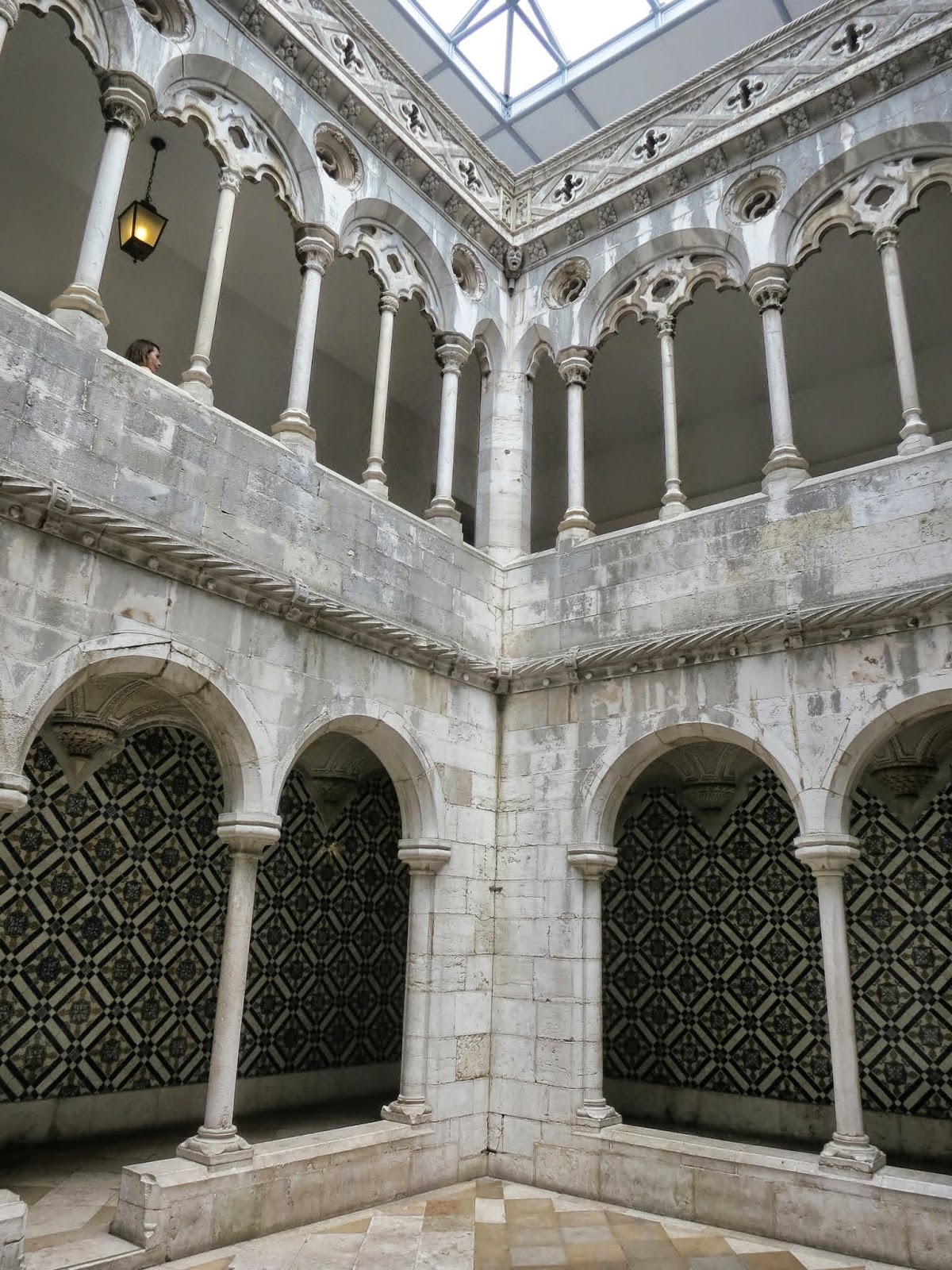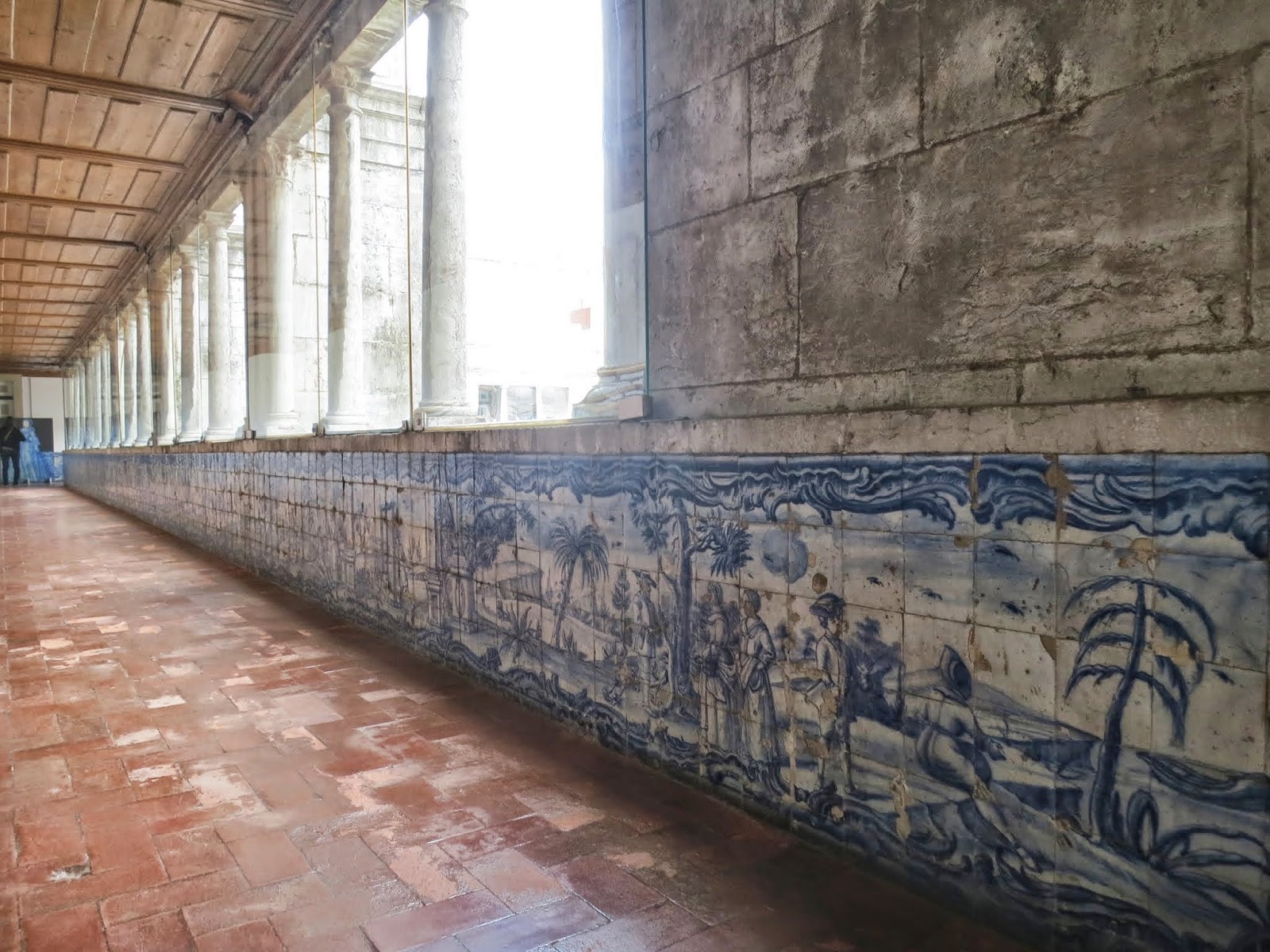I’ve always loved
looking at the beautiful tiles in Spain and it turned out that Portugal is
practically covered with them! The National Tile Museum was one of the first
museums I went to see.
I learnt in the Museum
that its Portuguese name, azulejo
comes from the Arab azzelij or al zulejcha, which means ceramic tile. It
has been around for an extremely long time, since the 13th century,
to be precise. Similarly to Spain, Portugal was also under Muslim rule. The
Spanish chased them out of the country however their decorating style was left
behind. The Portuguese took over their rigid geometric forms (according to
their religion they are not allowed to depict anything resembling a living
thing as only God has the power to create) then slowly turned them into their
liking, however the Islamic motifs endured for centuries.
I was fascinated to
learn about how each tile was formed and decorated.
The building of the
Museum is also fascinating. It is housed in a Convent of the Mother of God
which does not look very impressive from the outside however some areas are
jawdroppingly beautiful. For example the chapel
which was decorated in a Baroque style and its walls and the ceiling are all
filled with huge paintings.
You can take a break
and relax in the shady courtyard or walk around the cloister.
Walking through the
rooms of the Museum is like walking through time as you can follow the history
of the ceramic tiles over the centuries. The Portuguese tile has found its
identity in the painted blue scenes which you can see examples of all over the
country.
Some of the modern,
contemporary designs.
The pride and joy of
the Museum is this huge, panoramic view of Lisbon from before the 1755
earthquake. There are little plaques at the bottom to explain the many
churches, convents and palaces on the paining.
The National Tile
Museum is a bit away from the centre on Rua Madre de Deus, 4, but easily accessible by the buses 794 and 742. It's open
from Tuesday to Sunday 10am to 18pm. The normal entry fee was 6 euros at the
time of writing however the Museum is free to enter on every first Sunday of
the month.
























This is my first time i visit here. I found so many interesting stuff in your blog especially its discussion. From the tons of comments on your articles, I guess I am not the only one having all the enjoyment here! keep up the good work
ReplyDeleteCeramic tile